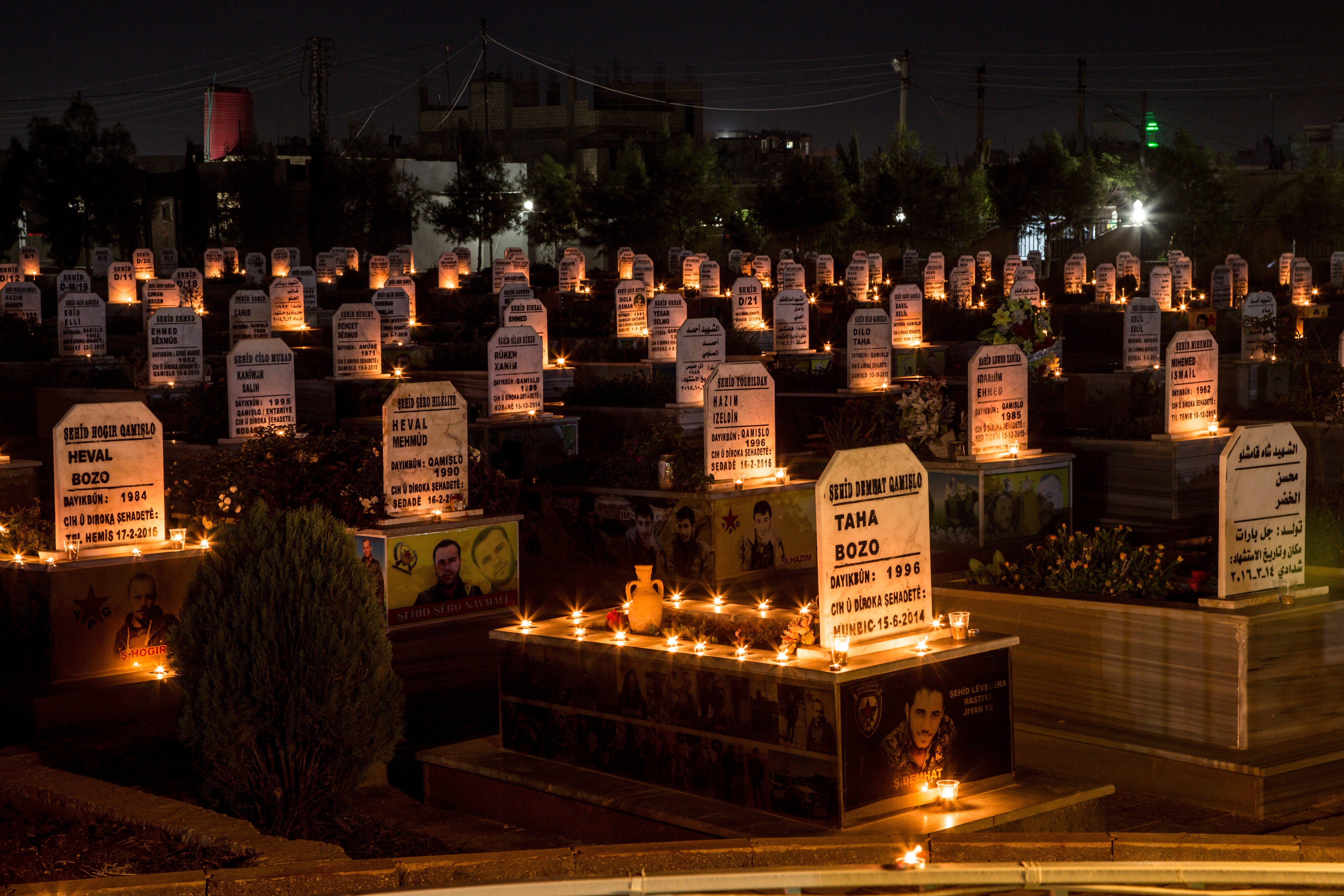UN: Arbitrary detentions in Syria conflict may be war crimes
A U.N. commission on Syria says in a new report that tens of thousands of civilians were arbitrarily detained in enforced disappearances during the country's 10-year conflict

Tens of thousands of civilians in Syria were “arbitrarily detained" in enforced disappearances during the country s 10-year conflict, a U.N. commission said in a report released Monday. The fate of many remains unknown to this day.
Thousands more have been subjected to torture and sexual violence, offenses that can amount to war crimes, the report by the U.N. Commission of Inquiry on Syria said. The commission has regularly reported on suspected human rights violations and abuses since the civil war erupted.
According to the report, the Syrian government arbitrarily arrested and detained individuals and committed “war crimes and crimes against humanity in the context of detention.” Other parties in the conflict also committed crimes by unlawfully and arbitrarily depriving individuals of their liberty, it said.
Rival groups have been blamed for atrocities since Syria’s conflict broke out in March 2011 with anti-government protests that morphed into a civil war. They run jails where wide violations are reported against detainees.
The conflict has killed nearly half a million people, displaced half the country’s pre-war population of 23 million, including 5 million who are refugees abroad. Large parts of Syria are destroyed and tens of thousands still live in tent settlements.
The more than 30-page report is based on 2,658 interviews with victims and witnesses conducted from 2011 to the end of 2020, in addition to photographs, videos, satellite imagery, official documents and reports from multiple sources.
It is also based on investigations into more than 100 specific detention facilities, history documents and continued detention-related violations and abuses by nearly every major party that has controlled territory in Syria since 2011.
“The wealth of evidence collected over a decade is staggering, yet the parties to the conflict, with very few exceptions, have failed to investigate their own forces,” said Commissioner Karen Koning AbuZayd.
“The focus appears to be on concealing, rather than investigating crimes committed in the detention facilities,” she added.
The report notes “massive scale of detention” and abuses perpetrated by Syrian President Bashar Assad’s government and also lists detentions by insurgent groups, including Turkey-backed opposition fighters, other rebel groups and the U.S.-backed Kurdish-led Syrian Democratic Forces. It also examines the record of the al-Qaida-linked Hayat Tahrir al-Sham and the Islamic State group — both designated terrorist organizations by the U.N.
The fate of tens of thousands of civilians who were forcibly disappeared by Syrian government forces, many nearly a decade ago, remains unknown, the report said. Many are presumed to have died or been executed, while some are believed to be held in inhuman conditions of detention.
“Hundreds of thousands of family members have a right to the truth about their loved ones’ fate,” said the commission's chairman, Paulo Pinheiro.
The commission also urged the government in Damascus to take urgent steps to reveal the fate of the missing. The report appeals on all parties to halt and prevent violations, immediately release specific groups of individuals, allow independent monitoring of detention facilities and provide support to victims.
The report is to be discussed by the U.N.-backed Human Rights Council, which set up the commission, on March 11, as part of its current four-week session.
___
Mroue reported from Beirut.
Bookmark popover
Removed from bookmarks